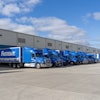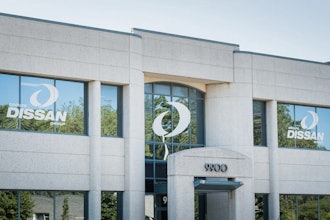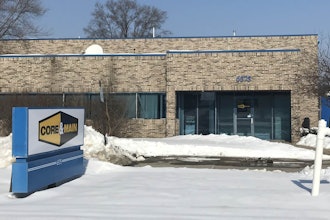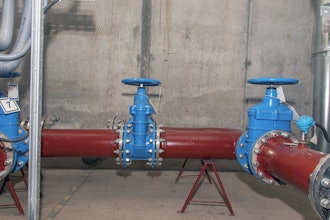
The Dangers of Relying on a
Homegrown ERP System
Epicor White Paper
The Dangers of Relying on a Homegrown ERP System
1
Imagine being able to, yourself, produce everything you consume, fix your vehicles, accurately
diagnose and treat any medical condition you develop. Compared to using grocery stores, auto
repair shops, and doctors, it would likely save you a boatload of cash and time to seek out those
services. It would be a lot more labor for you, but would allow you to live a more organic life.
Unfortunately, being that organic is nearly impossible in today’s society unless you are a jack-of-
all-trades living off the grid.
Businesses also put a premium on achieving organic growth. Ideally, most of them would self-
sustain in all aspects of their operation—from hiring, payroll, accounting, and software down to
the Internet they use and changing out their water coolers. However that has been unrealistic
for decades now. Businesses utilize service providers to handle all those operations and more,
allowing them to focus instead more on what matters most—the customer.
In the world of B2B distribution, very large businesses grab most of the market headlines.
However, the vast majority of the market is still comprised independent firms, many of them
family-owned. These types of businesses are often run with legacy operations, are set in their
ways, and have a hard time letting an outside entity handle any part of the business. Along
with perhaps a native eCommerce platform, these distributors often have an ERP system they
built from the ground up. They may have done so as a means to have total control over such
an important piece of software that essentially runs the business, and/or as a means to save on
what it would otherwise cost to buy an ERP provider’s platform.
In theory, having an organic ERP system sounds ideal—but just as someone is typically better
off having their car serviced by a mechanic rather than try fixing it themselves, in many cases
a distributor is better off leaving such a crucial business feature as ERP to the experts who
specialize in it.
Today’s demands on distributors can spread independent ones thin in critical areas while making
it critical for these businesses to have a modern ERP system. Homegrown ERP may give the user
a sense of total control, but it also brings a number of challenges and dangers compared to
utilizing a provider. Here, we’ll discuss these dangers and how leading ERP provider platforms
are built to handle them.
It’s Not What You Are Best At
Simply put, distributors are not software companies. You are providers of products and services
to customers. That has been your bread and butter since the industrial revolution—not building
an extensive data logging system that can run the business. An ERP system can take a distributor
more than a year to build from scratch, eating up countless hours of labor, finances, and other
resources that could otherwise be put toward core competencies of selling and serving customers.
Lack of Staff and Support
While distributor office employees have become increasingly tech-savvy over the years, the
only staff typically qualified to handle ERP design, installation, and/or troubleshooting issues are
IT personnel. Even if such a project of building an ERP system is delegated to a company’s IT
department, that’s going to take that team away from their core role of helping in
other operations.
The Dangers of Relying on a Homegrown ERP System
2
Compounding this is that, for a
homegrown system, the only ones in
the company who can respond to an
ERP problem are typically the individuals
who built it. They are the support team.
What if that team needs support? What
if the lead person with all the answers is
out of the office or on vacation? What if
they leave the company? Relying on your
own IT staff to be your troubleshooting
team can quickly lead to frustrations and
headaches. On the other hand, an ERP
vendor has teams of support personnel
who are prepared to handle any issues
that arise from using their platform. They
are only an email or phone call away,
and have seen and solved virtually every
problem that could pop up.
Whereas employees using in-house ERP
may be well versed in the ins and outs
of the system, it can be a steep learning
curve for new hires, and the only ones
who can teach them the system are
fellow users or the IT staff. Compare
this to leading ERP vendors, who
typically have extensive robust learning
management systems, help screens,
training classes, and certification tests to
get new employees or users on board
fast and efficiently.
Quality Control
Going hand-in-hand with the support
aspect of ERP is the painstaking process
of making sure an ERP system is
bug-free and 100 percent operational
before it goes live. Unless your IT
team is extensive, the testing and
re-testing process may still not find
hidden problems or oversights made
in the architectural stage. Launching
a homegrown system only to find out
it doesn’t do one or more tasks you
expected would not only be disappointing,
but may quickly require maintenance and
more resources to resolve.
Leading ERP providers market their solutions
to thousands of customers and end users,
and their reputation depends on having a
quality product. This ensures that many ERP
professionals have thoroughly tested to make
sure the software performs as expected.
Limited Data and Information
A modern ERP system pulls data from various
locations—purchase orders from different
sources (in store, over the phone, emailed,
eCommerce), warehousing, shipping, and
staffing. Often, data pulled by a homegrown
ERP system does not integrate or format
well with other applications. This can result
in data silos that detract from processes that
need data from several of those sources,
and duplicate data that may be inaccurate
or incomplete. Worse yet, siloed or duplicate
data requires additional storage than data that
flows seamlessly between applications.
Another downside to in-house ERP data is that
it is often not in real time or only accessible at
the office. Relying on this leaves a company
far less agile and slower to respond to
changes in market conditions or more sudden
changes that an individual customer may
endure. Modern ERP systems from leading
providers have evolved to the cloud over the
past decade with software that allows users to
view and input data anytime, anywhere, and
from multiple devices.
Limited Potential
Homegrown ERP tends to be tailored to that
business’ exact role and end markets—and
should be—but with today’s constantly
evolving customer buying habits, what
happens when that business’ role changes?
What if the business grows faster than
expected? If a distributor makes an acquisition
or divestment, adds or removes a product/
service category, they need their ERP to keep
up. These kinds of changes can require bolt-
on additions to an in-house ERP platform
and lead to inconsistencies across the system.
Modern ERP software from leading providers
adapts with the user, and offers applications,
widgets, and functionality that the provider
can seamlessly add.
Additionally, certain ERP providers allow
distributors to add only as much ERP software
as they need, rather than an all-or-nothing
solution. Maybe a distributor wants an
ERP system only for their purchase order
information but not for warehousing.
That’s certainly an option with modern ERP.
Today’s top ERP providers also help migrate
distributors from the provider’s on-premises
software to their cloud offering.
Underestimated Costs
One of the main reasons some distributors
chose to go with an in-house ERP platform is
the perceived notion that it would cost less
than going through a provider. The initial
homegrown start-up cost may in fact be a
cheaper option, but is misleading when not
factoring in the amount of time and effort
used to build and install it. Then there are
the maintenance costs. Since in-house ERP
typically relies on historical data and has
limited storage capacity, the system inevitably
will need to be upgraded—costing more
time, effort, and raw dollars. That’s not even
factoring in the resources spent to solve
unexpected issues. Meanwhile, the distributor
could have been putting those resources
toward growing the business and letting the
provider handle the ERP side of things.
The contents of this document are for informational purposes only and are subject to change without notice. Epicor Software Corporation makes no guarantee, representations, or warranties with
regard to the enclosed information and specifically disclaims, to the full extent of the law, any applicable implied warranties, such as fitness for a particular purpose, merchantability, satisfactory quality, or
reasonable skill and care. This document and its contents, including the viewpoints, dates, and functional content expressed herein are believed to be accurate as of its date of publication, October 2018.
The results represented in this testimonial may be unique to the particular user as each user’s experience will vary. The usage of any Epicor software shall be pursuant to the applicable end user license
agreement, and the performance of any consulting services by Epicor personnel shall be pursuant to applicable standard services terms and conditions. Usage of the solution(s) described in this document
with other Epicor software or third-party products may require the purchase of licenses for such other products. Epicor and the Epicor logo are registered trademarks or trademarks of Epicor Software
Corporation in the United States, certain other countries and/or the EU. All other trademarks mentioned are the property of their respective owners. Copyright © 2018 Epicor Software Corporation. All
rights reserved.
About Epicor
Epicor Software Corporation drives business growth. We provide flexible, industry-specific software that is designed around the needs of our
manufacturing, distribution, retail, and service industry customers. More than 45 years of experience with our customers’ unique business
processes and operational requirements is built into every solution—in the cloud or on premises. With a deep understanding of your industry,
Epicor solutions spur growth while managing complexity. The result is powerful solutions that free your resources so you can grow your
business. For more information, connect with Epicor or visit www.epicor.com.
Contact us today [email protected] www.epicor.com
About This Report
The information in this report was originally researched and produced by Industrial Distribution in conjunction with Epicor. Statistical data was
researched and compiled by Advantage Business Marketing in August 2018.
The Dangers of Relying on a Homegrown ERP System
Conclusion
As noted in our introduction, it is
understandable why a company would
want their ERP system to be done
in-house as opposed to relying on an
outside source. For some companies, it
probably fits their business model or is the
only option. However, for today’s distribution
and other manufacturing companies that
want to stay or become modern and more
competitive, utilizing the extensive resources
of a leading ERP provider is the way to go.
It is less costly, involves fewer headaches,
and requires significantly less labor on the
company’s end. Best yet, it lets distributors
stay focused on what is most important—
their customers.






















